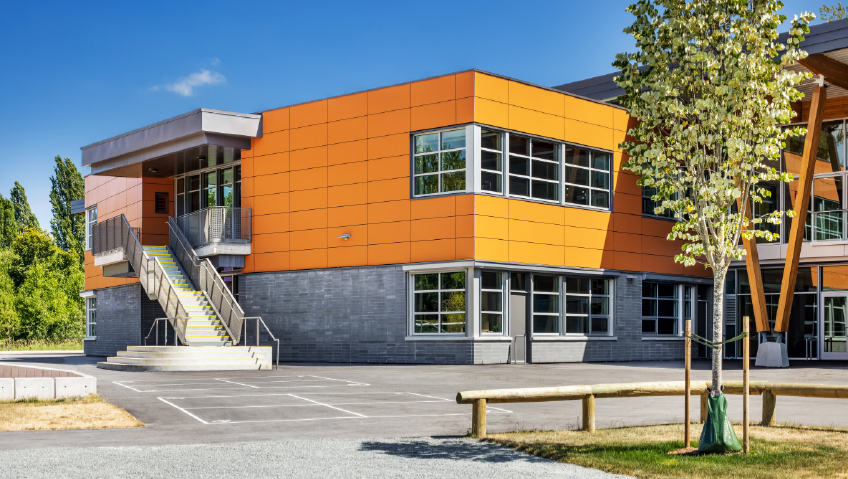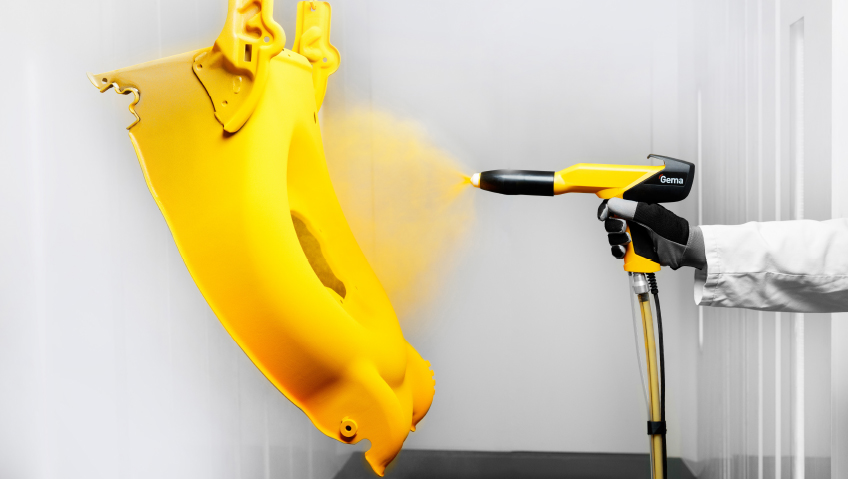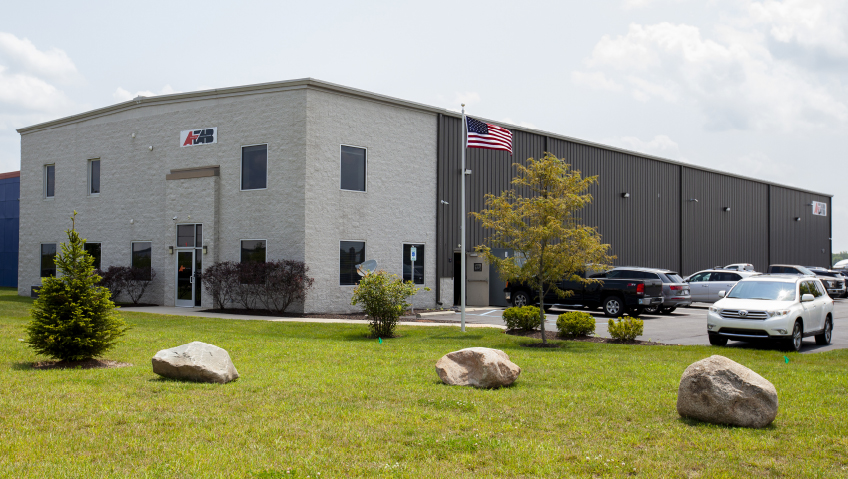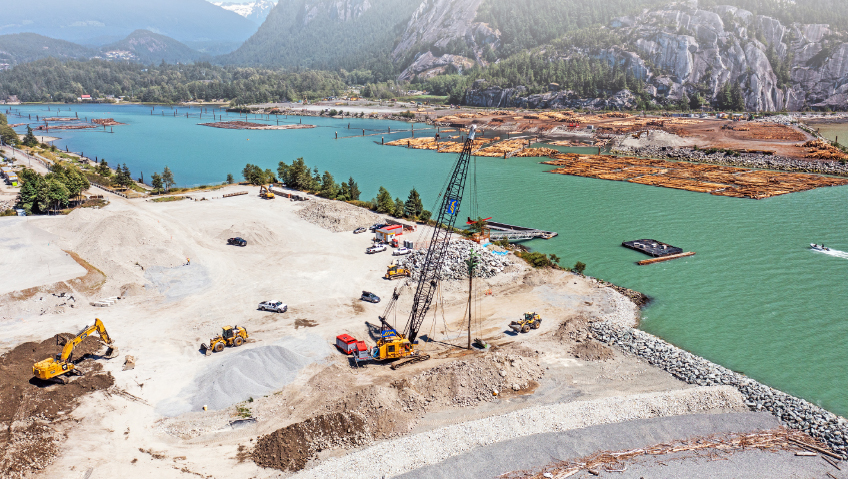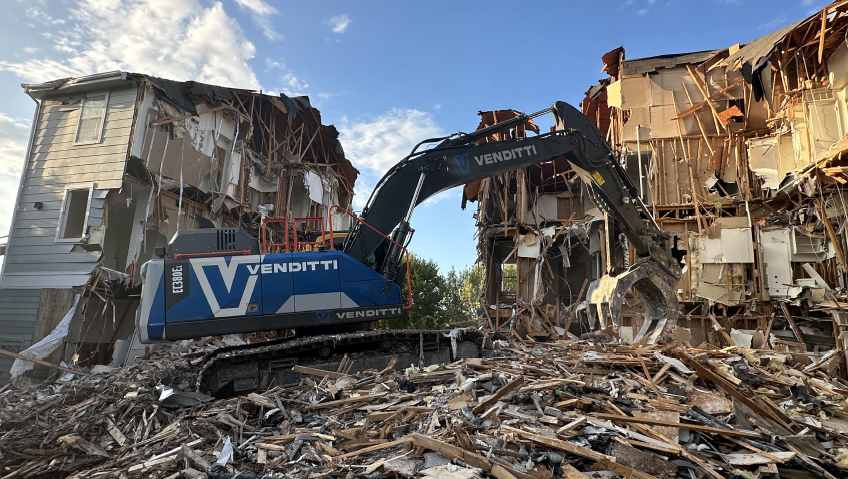Utilizing inventive, environmentally conscious, and economically viable techniques to construct and renovate long-lasting structures, Pro-Can Construction Group has been offering cutting-edge construction solutions to both the public and private sectors since 1985.
This Burnaby, British Columbia-based company prioritizes using sustainable building techniques in all of its projects, including commercial, industrial, multi-family, local government, and educational.
Finding its niche
The company has significantly increased the scope of its services and capabilities under the direction of Vice President Sara Pou and Construction Manager Leo Perez. In particular, the business has maintained its commitment to environmental awareness and green construction in municipal buildings, fire halls, and schools, including post-secondary education, as well as seismic upgrades and building envelope restorations.
“The company was started by my father and my business partner’s uncle, just two immigrants doing their thing back in the 1980s,” says Perez. “They started as a residential company and shifted over more to commercial in the early 1990s, then focused on public sector work and schools into the late 1990s, early 2000s,” he explains.
When the founding partners retired in 2009, Perez and Pou, who had been involved with Pro-Can for over 10 years, took over, continuing with the focus on public sector work.
“We were more of a smaller boutique company that didn’t do too much, picking and choosing projects, and went along happily like that,” Perez says. Around 2017 Pro-can shifted, diversifying away from public sector work for market reasons more than anything, Perez says, toward the private sector in which the company has found success in the last four to five years, including areas such as residential multi-family rental buildings.
“We’re still doing public sector work, but where it used to be 80 percent public sector and 20 percent private, now it’s more like 40 percent public and 60 percent private,” says Perez.
Sized just right
Now nearing 40 years in business, Perez attributes the company’s history of success to several factors, one of which is that clients find everyone associated with Pro-Can to be reliable and responsible.
“Clients want to have someone they can hold accountable,” he says. “We do bigger projects, but are a smaller company, so it’s easier to pin down our accountability within the firm as opposed to a larger company.”
Perez has heard this directly from clients who, when working with larger companies that have so many different people involved, often don’t know who to contact when there are problems to be addressed.
“Working with Pro-Can, clients can pick up the phone and talk directly with either myself or Sara, and they like that,” says Perez. “I think that gives us a bit of a competitive advantage where it’s more personal.”
But, he adds, with the nature of construction constantly pressuring companies to move up and do bigger jobs, growth is “pretty natural” for construction companies—but with growth come challenges.
“We’ve been very aware of that and [cautious] to not just take on growth for the sake of it, because we’ve learned that bigger volume doesn’t necessarily mean bigger profit,” Perez says. “We’d like to be in that five to $35 million project range; that’s kind of our sweet spot. The projects are too small for the big companies to take a good run at them and a bit big for the smaller companies, so it’s a good niche market for us.”
The housing issue
Pro-Can is also focusing on its new division of mixed-use development construction in an effort to help with the ongoing housing shortage.
“There’s no denying there’s a huge housing crisis, not only in Vancouver but across the country,” Perez says. “There’s just such a demand for rental housing here in the city of Vancouver, and the city is trying to do what it can to facilitate these projects. For us, it’s about making sure we do a good job at it because there’s a lot of work out there in the rental market.”
Rental buildings are a long-term play but are not big money-makers, and budgets are very important to Pro-Can’s clients. With extremely high land value in Vancouver coupled with high post-pandemic construction costs, managing budgets and finding creative ways of keeping costs down while still delivering a good product is paramount.
“It’s a good part of our success because we’ve been focused on that,” Perez says, adding that keeping costs manageable goes a long way to bringing in repeat clients. “Being personable, people knowing who to call, being mindful of the budget—I think those are the keys to success.”
Long delays in obtaining permits are another challenge faced by developers, which in turn leads to delays in building high-demand dwellings. There are also issues with the exorbitant cost of land and old rental stock that needs to be replaced. “You can’t just stop building rental buildings, and the old ones are inefficient and have to be renovated or replaced,” Perez explains.
Talent search
There is also a serious dearth of talent in the construction industry with simply not enough workers available to build all that’s needed.
“Immigration is great, and I come from immigrant parents, but there’s a timeframe where people have to learn trades and skills, and that takes time,” says Perez. “We just don’t have enough of that happening even domestically. I used to see tons of young kids on my job sites. I don’t see that anymore, and it’s scary.”
This has become an issue throughout the construction industry, despite it being a rewarding and potentially lucrative career. “There’s just so much demand. I could pick up the phone tomorrow and double the size of my company if I wanted to but I can’t, because I’m restricted by personnel.”
The price of COVID
While doing business as usual during the pandemic presented unique problems, post-pandemic business brings different sets of issues, particularly in material pricing, which remains higher than usual.
“Globally, the market is cooling at a rapid pace, so why are we still getting hit with material cost increases?” Perez says. “We’re two years out of the pandemic, but we’re still getting pandemic-style cost increases and hyperinflation, so that’s still a challenge.”
Navigating a price from a sub-trade that three months later is 15 percent higher is an ongoing challenge for all businesses, and one that Pro-Can faces itself. In terms of planning, work has also been a challenge because of issues with permits, Perez says, which have only become worse in the period since the pandemic.
“On projects that we thought were going to start, or that we’d get a permit for at roughly this or that time, now we don’t have a permit,” he says. “I had two projects this fall that were supposed to start and they’re in limbo; no one knows when those permits are going to come through or what’s happening. So that’s still a challenge that’s hurting us.”
The ongoing work-from-home model has also presented difficulties with hiring efficiencies, along with the uncertainty in material costs, which he hopes will start to resolve itself soon, especially as the pandemic continues to wind down. “Right now is probably the most challenging time that I remember in my career—the two years between the pandemic and now.”
Powering through
Despite all of this, Pro-Can worked steadily throughout the COVID years on projects that Perez refers to as the company’s “pandemic babies,” including the $8 million KB Woodward Elementary addition, the $4 million Urban Academy, and a $14 million rental building, to name a few.
The company completed the last of its pandemic babies in November of 2023. “They were projects that took a lot more out of us than we thought they would just because they were built during the pandemic,” says Perez.
“We had a couple of projects that we had started before March 2020, and we finished them during the pandemic, but we don’t count those as pandemic babies—just the ones that were started and finished during the pandemic.” Completing these projects well despite the unique hurdles thrown up by COVID was a point of pride for the team. “Getting those projects finished was kind of like sending your kids to college and saying, ‘We did it!’ That was a milestone and something to be happy about.”
With its experience, exemplary leadership, and employee commitment, facing obstacles and tough projects and overcoming them is something Pro-Can has done for many years and plans to continue doing. The team also plans to continue addressing the differences between its public clients, such as school boards and municipalities, and its private client—investors and business owners—and delivering outstanding results to each.
“These are two different types of clients, but overall they have the same goals,” Perez says, “which is putting up buildings as efficiently and cost-effectively as possible.”

